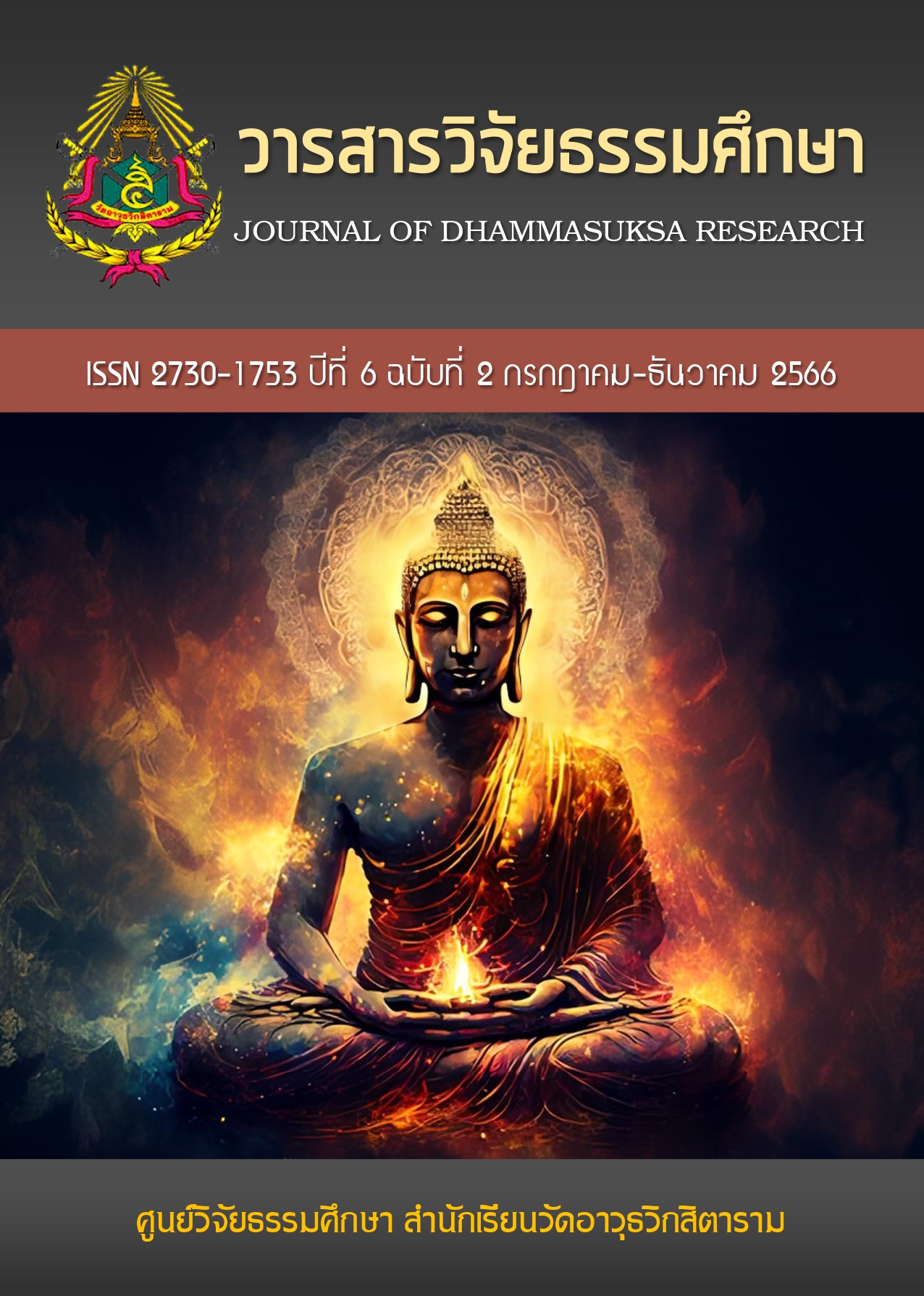Geosocial: An Analytic, Appreciative, and Applicative Study
Keywords:
Geosocial, Working Principles, Analytic Appreciative Applicative StudyAbstract
The objective of this research article is to analyze, appreciate, and apply a royal working principle in respect with geosocial. The study was based on the qualitative approach by searching and compiling the information from all related documents and research papers regarding the royal working principle used by His Majesty King Bhumibol Adulyadej. The results were the following. 1. From the analytic result, geosocial could be divided into 2 parts: geography, e.g., landscape, area characteristics; and social science in sociology, e.g., demography, behavior, living of each ethnic in various areas. 2. From the appreciative result, geosocial could make us know the point of parity of each area and between areas, know points of difference of each area where should have the development direction to be relevant to each geosocial identity, drive the strength of each area to excellence for public benefit and happiness, and help each geosocial have balance, and get along with people’s living that caused happiness of people in that society. 3. From the applicative result, this royal working principle could be applied as follows: 1) surveying both quantitative and qualitative information of that society; and 2) Analyzing and synthesizing all information in order to “find out points of parity, and set aside points of difference constructively”. For the points of parity, it would be applied together for all people’s quality of life and happiness.
References
จรัส นวลนิ่ม, ผศ. (2540). การศึกษากับการพัฒนาประเทศ. โอ.เอส. พริ้นติ้ง เฮ้าส์.
ชัยโรจน์ นพเฉลิมโรจน์. (2558). “หลักคุณภาพในโครงการอันเนื่องมาจากพระราชดำริกับปรัชญาหลังนวยุค : การศึกษาเชิงวิเคราะห์ วิจักษ์ และวิธาน”. วิทยานิพนธ์ปรัชญาดุษฎีบัณฑิต. บัณฑิตวิทยาลัย : มหาวิทยาลัยราชภัฏสวนสุนันทา.
________. (2564). คิดอย่างไรให้ได้นวัตกรรม. กรุงเทพฯ : ม.ป.ท.
________. (2565). “การคิดนวัตกรรมด้วยหลักการทรงงานตามหลักปรัชญาหลังนวยุค”. วารสารการวิจัยเพื่อพัฒนาชุมชน. พิษณุโลก : มหาวิทยาลัยนเรศวร. ปีที่ 15 ฉบับที่ 2. (เมษายน – มิถุนายน).
เมธา หริมเทพาธิป. (2564). สังคมแห่งการแบ่งปันตามหลักปรัชญาของเศรษฐกิจพอเพียง : การศึกษาเชิงวิเคราะห์ วิจักษ์ และวิธาน. รายงานการวิจัย. บัณฑิตวิทยาลัย : มหาวิทยาลัยราชภัฏสวนสุนันทา.
________. (2566). “การศึกษาตามหลักปรัชญาหลังนวยุคสายกลาง : วิเคราะห์จากหลักการทรงงานของพระบาทสมเด็จพระบรมชนกาธิเบศร มหาภูมิพลอดุลยเดชมหาราช บรมนาถบพิตร (ตอนที่ 1)”. สถาบันความพอเพียง. สืบค้นเมื่อวันที่ 11 พฤศจิกายน 2566 จาก http://porpeang.net/
สำนักงานคณะกรรมการพิเศษเพื่อประสานงานโครงการอันเนื่องมาจากพระราชดำริ. (2560). แนวคิดและทฤษฎีการพัฒนาอันเนื่องมาจากพระราชดำริในพระบาทสมเด็จพระเจ้าอยู่หัว. กรุงเทพฯ : หจก.อรุณการพิมพ์.
Downloads
Published
How to Cite
Issue
Section
Categories
License
Copyright (c) 2023 Journal of Dhammasuksa Research

This work is licensed under a Creative Commons Attribution-NonCommercial-NoDerivatives 4.0 International License.



